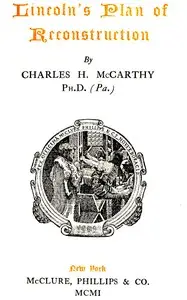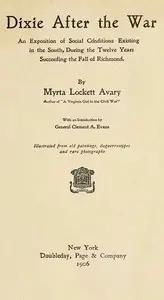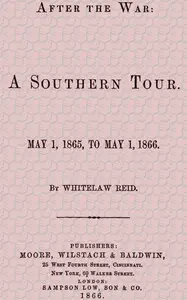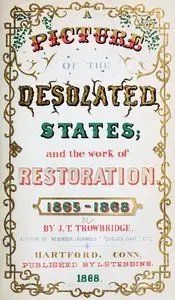"The Sequel of Appomattox: A Chronicle of the Reunion of the States" by Walter Lynwood Fleming is a historical exploration of the Reconstruction era following the Civil War. It reveals the difficulties of reuniting a divided nation. The book emphasizes the social and economic difficulties, the fight for the rights of newly freed slaves and the South's troubled politics. Beginning right after the war, it describes a broken South, where returning Confederate soldiers meet ruined land and livelihoods, showing the widespread poverty and disorganized society struggling with the new realities of freedom.
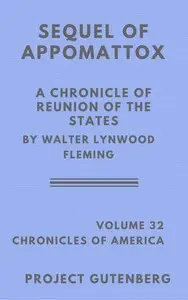
The Sequel of Appomattox: A Chronicle of the Reunion of the States
By Walter L. (Walter Lynwood) Fleming
After a devastating war, a nation grapples with poverty, political turmoil, and the struggle for equality as it attempts to rebuild from the ashes.
Summary
About the AuthorWalter Lynwood Fleming (1874–1932) was an American historian of the South and Reconstruction. He was a leader of the Dunning School of scholars in the early 20th century, who addressed Reconstruction era history using historiographical technique. He was a professor at Vanderbilt University from 1917 through his career, also serving as Dean of the School of Arts and Sciences, and Director of the Graduate School. A prolific writer, he published ten books and 166 articles and reviews. The son of a plantation owner who had slaves, Fleming was sympathetic to White supremacist arguments and Democratic Party positions of his era while critical of Republicans and Reconstruction.
Walter Lynwood Fleming (1874–1932) was an American historian of the South and Reconstruction. He was a leader of the Dunning School of scholars in the early 20th century, who addressed Reconstruction era history using historiographical technique. He was a professor at Vanderbilt University from 1917 through his career, also serving as Dean of the School of Arts and Sciences, and Director of the Graduate School. A prolific writer, he published ten books and 166 articles and reviews. The son of a plantation owner who had slaves, Fleming was sympathetic to White supremacist arguments and Democratic Party positions of his era while critical of Republicans and Reconstruction.

